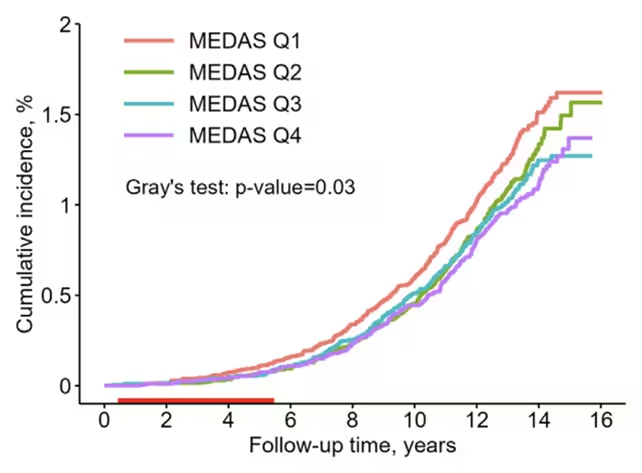5 Minutes
Dietary Choices as a Key Factor in Dementia Prevention
A comprehensive new study led by researchers at Yonsei University in South Korea has offered compelling evidence that adhering to four specific healthy diets can significantly reduce the risk of dementia—a condition affecting millions worldwide. As global populations age, dementia prevention has emerged as a major public health priority, with scientists seeking modifiable risk factors that individuals can target in daily life.
Study Overview: Tracking Diet and Dementia Over Time
The research team analyzed detailed dietary information from 131,209 adults aged 40 to 69, drawing from a large public health database. Participants' diets were evaluated using four well-established dietary patterns: the Mediterranean Diet Adherence Screener (MEDAS), the Mediterranean-DASH Intervention for Neurodegenerative Delay (MIND) diet, the Recommended Food Score (RFS), and the Alternative Healthy Eating Index (AHEI). Follow-up extended over an average of 13.5 years, allowing for robust assessment of long-term links between dietary habits and dementia onset.
The study found that individuals consistently following any of these four healthy diets experienced a striking 21–28% reduction in dementia risk compared to those with lower adherence. The greatest risk reduction was seen in participants who scored highest on the Recommended Food Score, closely followed by those who followed the MIND diet—an eating pattern developed specifically to combat neurodegenerative diseases like Alzheimer’s.
Dietary Inflammation and Brain Health
In contrast, the researchers also measured diets using the Energy-Adjusted Dietary Inflammatory Index (EDII), a tool that reflects the inflammatory potential of dietary patterns. Diets with higher EDII scores—associated with more processed foods, red meats, and fried foods—were linked to a worrying 30% increase in dementia risk. This finding strengthens theories that chronic inflammation, potentially driven by diet, can accelerate the neurodegenerative processes associated with dementia.
The four healthy diets studied emphasize whole grains, fruits, vegetables, fish, nuts, and poultry. Conversely, they recommend limiting or avoiding red and processed meats, full-fat dairy products, and fried foods. Scientists hypothesize that these nutrient-rich, anti-inflammatory food choices may help buffer the brain against oxidative stress and support cognitive resilience in aging adults.

Impacts Across Age, Gender, and Body Weight
The protective effects of diet were more notable among older adults and women, and varied with obesity status, indicating that individual characteristics may interact with dietary habits to influence brain health outcomes. As the researchers note, these findings highlight the importance of tailoring nutritional strategies for populations most at risk.
"Given the lack of a definitive cure, our results suggest dietary interventions that focus on overall quality and anti-inflammatory foods could offer promising avenues for dementia prevention, especially among vulnerable groups," the study authors write.
Broader Context and Future Directions
While several genetic, lifestyle, and environmental factors are known to contribute to dementia risk—including family history, physical activity, and sleep—this study underscores that what we eat is among the most accessible modifiable factors. The researchers addressed limitations present in earlier work, such as reliance on a single diet score or short-term data, by comparing multiple diets and tracking participants for more than a decade.
However, the study stops short of proving causation and not all mechanisms are fully understood. Ongoing research will be essential to unravel the biological pathways through which specific foods influence the aging brain, and to develop public health guidelines that can be widely implemented.
Conclusion
This landmark study provides robust evidence that long-term adherence to healthy, plant-rich diet patterns can meaningfully lower the risk of dementia in adults—including Alzheimer’s and related neurodegenerative diseases. By focusing on diets high in fruits, vegetables, whole grains, and omega-3 fatty acids, individuals and communities can take practical action today to help safeguard cognitive health well into the future. As science continues to uncover the complex links between nutrition and the brain, dietary interventions are poised to play a central role in the global fight against dementia.



Comments